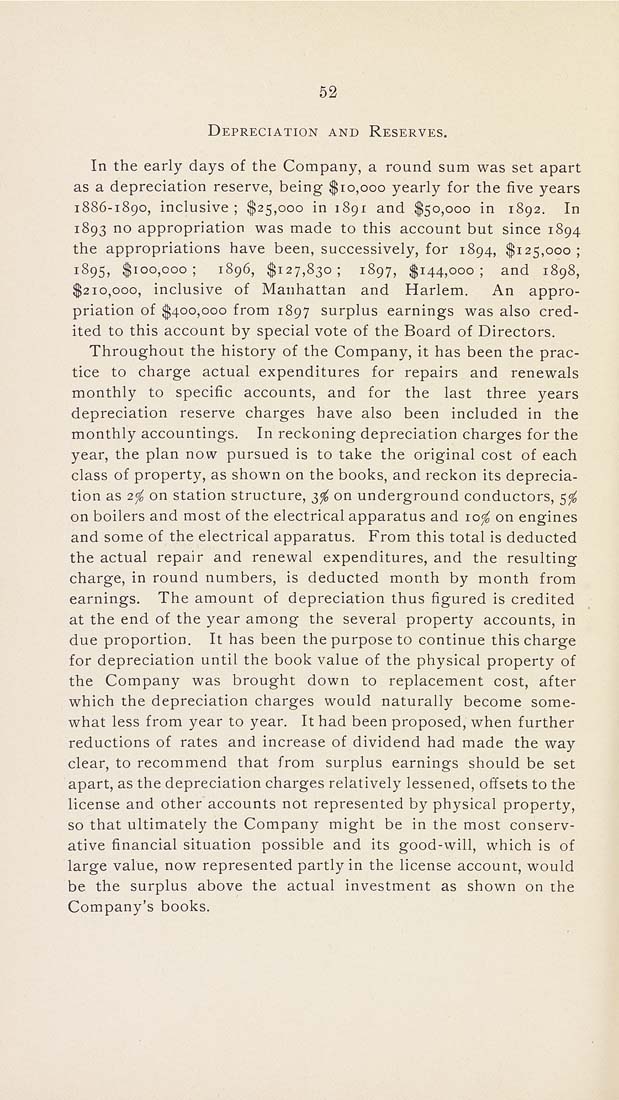52
Depreciation and Reserves.
In the early days of the Company, a round sum was set apart
as a depreciation reserve, being $10,000 yearly for the five years
1886-1890, inclusive; $25,000 in 1891 and $50,000 in 1892. In
1893 no appropriation was made to this account but since 1894
the appropriations have been, successively, for 1894, $125,000;
1895, $100,000 ; 1896, $127,830 ; 1897, $144,000 ; and 1898,
$210,000, inclusive of Manhattan and Harlem, An appro¬
priation of $400,000 from 1897 surplus earnings was also cred¬
ited to this account by special vote of the Board of Directors.
Throughout the history of the Company, it has been the prac¬
tice to charge actual expenditures for repairs and renewals
monthly to specific accounts, and for the last three years
depreciation reserve charges have also been included in the
monthly accountings. In reckoning depreciation charges for the
year, the plan now pursued is to take the original cost of each
class of property, as shown on the books, and reckon its deprecia¬
tion as 2^ on station structure, 3^ on underground conductors, 5^
on boilers and most of the electrical apparatus and 10^ on engines
and some of the electrical apparatus. From this total is deducted
the actual repair and renewal expenditures, and the resulting
charge, in round numbers, is deducted month by month from
earnings. The amount of depreciation thus figured is credited
at the end of the year among the several property accounts, in
due proportion. It has been the purpose to continue this charge
for depreciation until the book value of the physical property of
the Company was brought down to replacement cost, after
which the depreciation charges would naturally become some¬
what less from year to year. It had been proposed, when further
reductions of rates and increase of dividend had made the way
clear, to recommend that from surplus earnings should be set
apart, as the depreciation charges relatively lessened, offsets to the
license and other accounts not represented by physical property,
so that ultimately the Company might be in the most conserv¬
ative financial situation possible and its good-will, which is of
large value, now represented partly in the license account, would
be the surplus above the actual investment as shown on the
Company's books.
|








